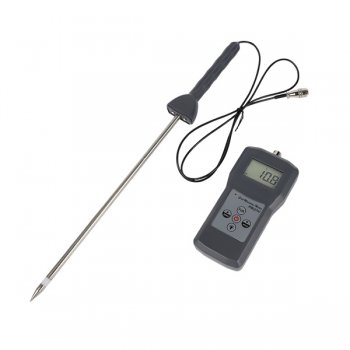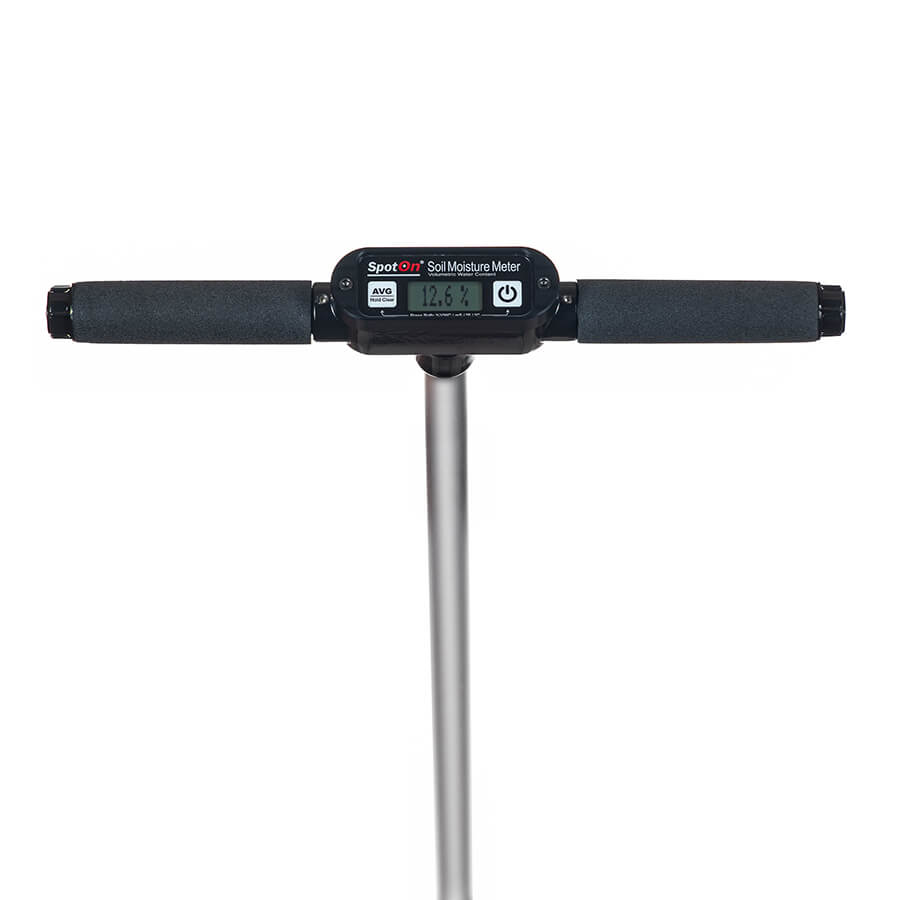The Ultimate Guide to Selecting the Right Moisture Meter for Your Needs
The Ultimate Guide to Selecting the Right Moisture Meter for Your Needs
Blog Article
The Ultimate Guide to Dampness Meters: A Comprehensive Introduction and Exactly How They Can Save You Money
Moisture meters offer as crucial tools in detecting and monitoring moisture material in products, assisting in avoiding pricey damages and making sure the top quality of items. Comprehending the subtleties of various types of wetness meters, their applications, and the possible cost-saving advantages they offer can be a game-changer for specialists and organizations alike.
Kinds Of Moisture Meters
One common type is the pin-type dampness meter, which gauges the electric resistance between 2 pins inserted right into a product. Pinless moisture meters, on the other hand, usage electromagnetic sensing unit plates to scan a larger area without creating damages to the material's surface.

Infrared dampness meters measure the thermal properties of a material to identify its moisture material non-invasively, making them beneficial for applications where pin or pinless meters might not be appropriate. Recognizing the different kinds of moisture meters offered can aid industries select the most proper tool for their specific dampness measurement demands.

Benefits of Making Use Of Moisture Meters
Dampness meters use very useful benefits in precisely keeping an eye on and examining wetness levels in varied products and atmospheres. One of the main benefits of making use of dampness meters is the prevention of potential damages created by excess wetness.
Additionally, using moisture meters can cause boosted energy performance. By determining areas with high dampness degrees, such as leaks or inadequate insulation, modifications can be made to improve power conservation and reduce energy costs. In farming settings, dampness meters play a crucial function in optimizing plant yields by enabling farmers to check dirt wetness levels and make educated irrigation choices. Generally, the benefits of utilizing wetness meters span throughout various sectors, supplying cost-effective remedies and promoting better quality assurance practices.
Exactly How to Choose the Right Moisture Meter
When choosing a dampness meter, it's crucial to make certain that the meter is appropriate for the particular material you will be screening. Various materials have differing electrical residential properties that can impact moisture analyses, so selecting a meter developed for your material is vital for exact outcomes. By very carefully assessing these factors, you can pick a wetness meter that satisfies your demands and supplies precise moisture dimensions for your projects.
Appropriate Techniques for Dampness Meter Usage

Expense Cost Savings With Wetness Meter Applications
Exactly how can the tactical usage of moisture meters lead to significant price financial savings across various industries? Moisture meters play an essential duty in expense financial savings by stopping potential damage and making certain high quality control in different industries. In the agriculture sector, dampness meters aid in identifying the optimal time for harvesting plants, protecting against over-drying or excess dampness that can affect the final item's high quality. This precise tracking helps farmers stay clear of unneeded losses and maximize their return.
Likewise, in construction, moisture meters aid prevent expensive problems by finding moisture levels in structure materials, such as wood or concrete, which can cause architectural issues otherwise addressed immediately. By recognizing issue locations early on, service providers can take corrective steps to stay clear of extensive repair work or replacements, eventually conserving money and time.
Additionally, in the food handling sector, dampness meters are important for keeping an eye on item top quality and ensuring compliance with security guidelines. By properly gauging moisture content in foodstuff, suppliers can prevent putridity, preserve freshness, and minimize waste, leading to substantial price financial savings. On the whole, the calculated application of wetness meters is a valuable investment that can result in considerable price decreases and improved performance throughout numerous sectors.
Verdict
Finally, dampness meters are great post to read important tools for discovering and gauging wetness levels in various materials. By making use of the appropriate moisture meter and following correct strategies, individuals can successfully avoid costly problems triggered by excess dampness. Purchasing a high quality wetness meter can lead to substantial price savings over time by identifying possible problems at an early stage and enabling punctual remediation. Ultimately, dampness meters are necessary instruments for preserving the stability and longevity of materials and structures.
Wetness meters serve as crucial tools in finding and keeping an eye on moisture web content in materials, aiding in stopping costly damages and making certain the quality of items. Infrared dampness meters measure the thermal residential or commercial properties of a product to establish its moisture material non-invasively, making them valuable for applications where pin or pinless meters may not be suitable.Wetness meters offer vital benefits in accurately monitoring and evaluating wetness degrees in varied products and environments. In agricultural settings, wetness meters play a vital duty in maximizing crop yields by enabling farmers to keep track of dirt dampness levels and make educated watering choices.In verdict, dampness meters are important tools for gauging and identifying dampness degrees in numerous products.
Report this page